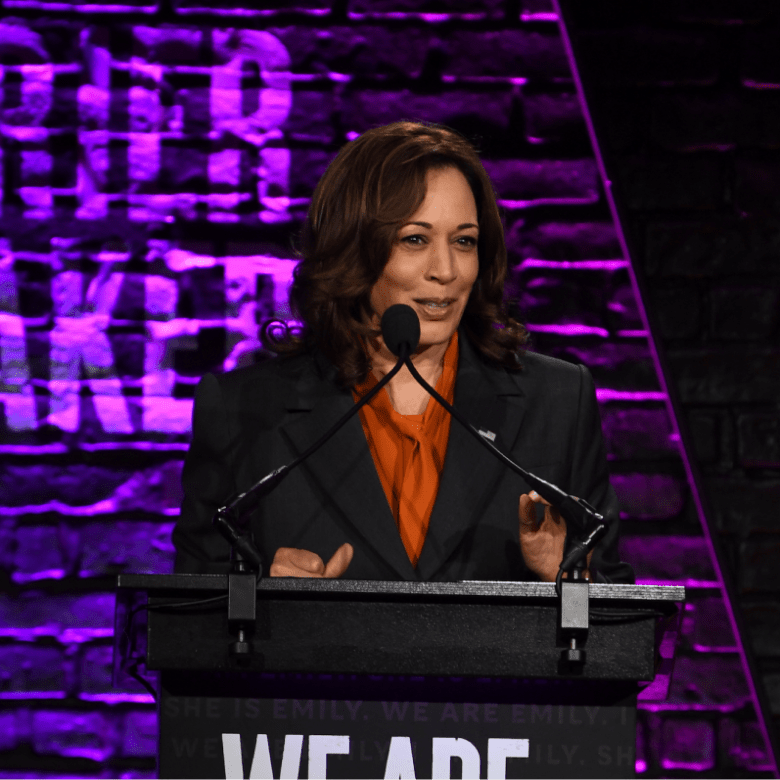Women Are Winning Elections Across the US, and EMILYs List Intends to Keep It That Way
ELLE: Women Are Winning Elections Across the US, and EMILY's List Intends to Keep It That Way
By: Madison Feller
It's too early to call it the “year of the woman”—there are still more primaries and a general election to be had. But if these first weeks of the 2018 primaries have told us anything, it's that women's electability is surging, and it could become a national trend.
Last week, during Pennsylvania's primary elections, eight women won their House races, seven of them Democrat and three backed by EMILY's List, an organization that assists pro-choice Democratic women in getting elected. The country saw it happen again this week, with the crucial win of Georgia's Stacey Abrams, another EMILY's List-endorsed candidate who won her primary gubernatorial race, making her a step closer to becoming the country's very first black female governor.
According to Axios, EMILY's List is planning on investing “tens of millions” in this year's races, and a combination of direct mail and TV advertising helped to secure those early Pennsylvania wins. While a number of the women winning their races are, of course, not backed by the organization, EMILY's List is trying to replicate those PA results in every state.
“Pennsylvania is an interesting case in that it's the largest state with no women in their federal delegation,” Christina Reynolds, vice president of communications at EMILY's List, told ELLE.com. “They have 18 members of Congress, two senators, and zero women. And so we knew that this was not going to be an easy fight, but in many ways, Pennsylvania is a microcosm of what we do writ large.” (Chrissy Houlahan, another EMILY's List-endorsed candidate, won her uncontested primary, and could be one of the women to infiltrate the state's delegation.)
The organization is looking to women like Houlahan, or Pennsylvania's Madeleine Dean, who won her primary in the state's 4th district. Reynolds also mentions Gina Ortiz Jones, a first-time candidate in Texas, who won the Democratic nomination for a U.S. House seat.
In terms of strategy, Reynolds says the organization takes the same approach as they do with their messaging: They want to do whatever works best for a particular district. “Pennsylvania is an example where there are certain places where it's just a really expensive media market, so mail is more doable than TV is,” Reynolds said. “We try to work with the campaigns to come up with the best strategy for their district rather than say, 'Here's the only path forward.'”
And when it comes to the months between the primaries and the general election, those strategies won't change all that much. “We're not big believers in you have to make a huge shift from primary to general; we think our women telling their stories is the most powerful thing. And we also think what's clear right now is that Democrats are enthused, and Democrats really want to see change. So we think our base is an incredibly important part of victory—this is not just aiming for the middle.”
Of course, it's too early to know how this will all pan out in November and how many women will actually be elected, especially as many go up against incumbent candidates. Kelly Dittmar, a political scientist at the Center for American Women and Politics, told The Guardian, “We're really hopeful that we'll see gains for women in November. But we're being careful about the extent to which this wave of women running will translate into a tsunami of women winning in November.”
DEMOCRATS ARE MORE ENTHUSED RIGHT NOW, BUT DOES THAT MEAN A DEMOCRATIC WAVE? NOT IF WE DON'T WORK FOR IT.
And either way, one year can't change the disproportionate numbers in Congress, where women make up 19 percent of the House and 23 percent of the Senate, according to The Guardian. Those numbers are unlikely to change in any dramatic way in 2018, though the swell of women running is the first step toward parity.
“We certainly still have a lot of work to do,” Reynolds said. “We don't take anything for granted. Democrats are more enthused right now, but does that mean a Democratic wave? Not if we don't work for it.”
